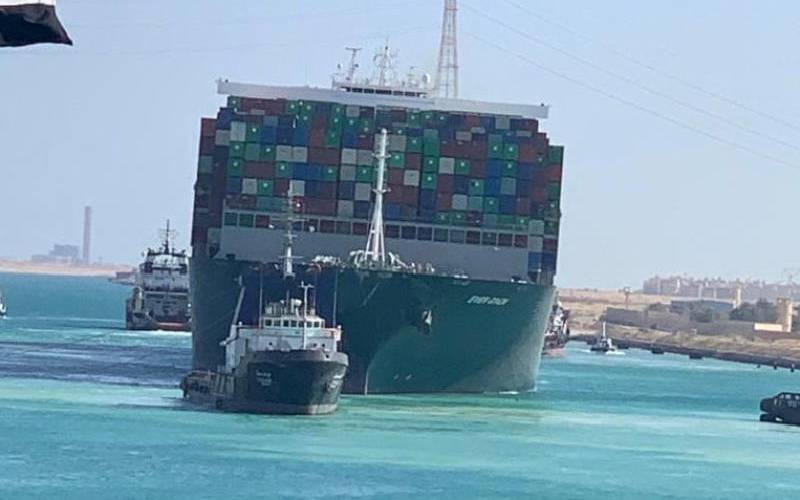×
The Standard e-Paper
Join Thousands Daily

Ship Ever Given, one of the world's largest container ships, is seen after it was fully floated in Suez Canal, Egypt March 29, 2021. Suez Canal Authority/Handout.
For almost a week, a Taiwanese registered ship owned by the Japanese, and carrying Chinese cargo to Europe blocked the Suez Canal and virtually held 12 per cent of world shipping hostage.